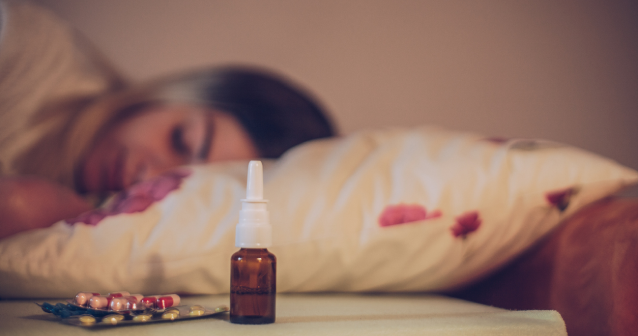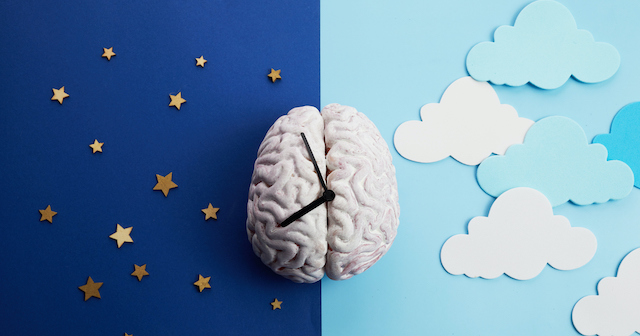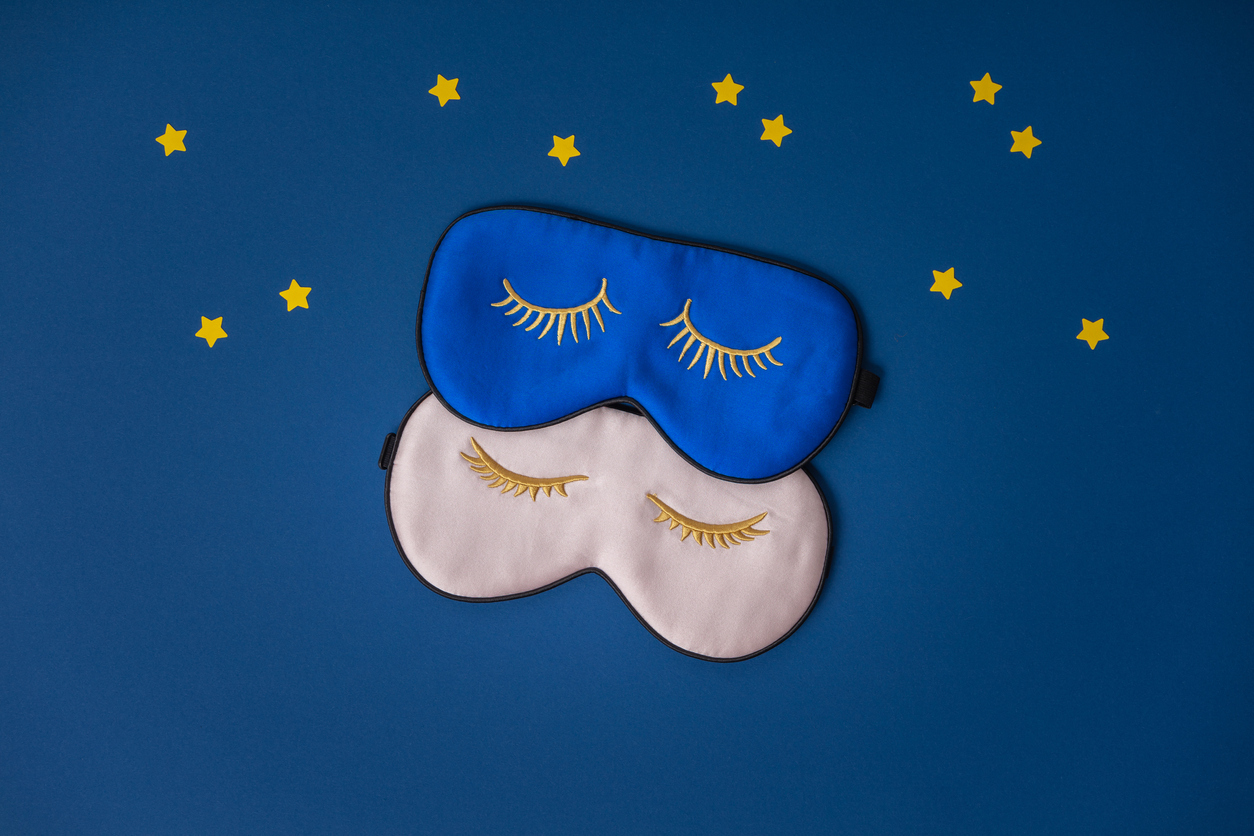You might already be aware that it’s not a good idea to have caffeine, nicotine or alcohol just before going to bed. But did you know that some medicines can also disrupt your sleep? If you’re struggling to sleep soundly, it makes sense to check whether any medication you’re taking could be affecting you.
If so, you might be able to change when you take them, or change to a different medicine – so speak to your doctor or pharmacist for advice. But remember never to stop or cut down on a medicine before you have that discussion, to make sure the symptoms it’s dealing with don’t come back.
Read on to discover the key medicines to know about when it comes to insomnia and sleep problems.
How can medicines affect how well you sleep?
Your sleep can be affected by medicines that pass from your bloodstream into your brain.
This can affect the quality of your sleep – such as how long it takes you to get to sleep, how often you wake up, or how long you sleep for. It can also affect your sleep cycles – the stages of sleep you go through during the night, such as the rapid eye movement (REM) stage, when you do most of your dreaming.
Some medicines can help you sleep better, while others can keep you awake. And some may cause side effects that stop you from sleeping, without affecting sleep itself.
In some cases, it can be hard to tell if your sleep problems are caused by the medicine you’re taking, or the condition you’re taking it for.
If you’re worried about your symptoms and unsure if you need to see a doctor, try our Smart Symptom Checker to help you work out if an appointment is the next best step for you.
Medication to watch out for, and what you can do
Several medicines can affect your sleep or cause trouble sleeping (insomnia), including medications used for common conditions. Here are 10 to be aware of.
1. Antidepressants
Antidepressants are commonly used to treat depression, but they’re also sometimes used for generalised anxiety disorder, obsessive compulsive disorder (OCD), post-traumatic stress disorder (PTSD) and some types of long-term (chronic) pain.
Because depression and anxiety themselves can often affect the quality of your sleep, it can be difficult to know if it’s the medicine or the condition that’s causing your sleep problems.
If you take an antidepressant that works for you, your sleep should improve in the long term, because of the beneficial effects on your mood.
But in the short term – such as in the first 2 weeks of taking them – some antidepressants can interfere with your sleep. These include:
- selective serotonin reuptake inhibitors (SSRIs) – these commonly prescribed antidepressants include fluoxetine, escitalopram, paroxetine and sertraline. They typically increase the number of times you wake up in the night and reduce your total time asleep
- serotonin and norepinephrine reuptake inhibitors (SNRIs) – these antidepressants, including venlafaxine, can treat depression and are sometimes used to treat anxiety disorders and chronic pain, especially nerve pain. Side effects can include trouble sleeping
- serotonin antagonist reuptake inhibitors (SARIs) – SARIs such as trazadone can have a mixed effect on sleep when you first take them, sometimes improving it and sometimes making it worse
- tricyclic antidepressants (TCAs) – sedating TCAs such as amitriptyline and doxepin can help to improve sleep quality, while activating TCAs such as imipramine may make it worse at first
- tetracyclic antidepressants – used to treat severe depression, tetracyclic antidepressants such as mirtazapine cause increased sleepiness in up to 1 in 10 people who take them
- monoamine oxidase inhibitors (MAOIs) – MAOIs such as phenelzine and isocarboxazid can slightly disrupt sleep for the first 2 weeks of taking them, but not as much as some other antidepressants
Sleep better tips
Sleep problems caused by antidepressants are usually short-term and improve over time. But you could also try:
- taking your antidepressant in the morning – depending on the type and if your doctor agrees you can do this
- self-care tips for managing depression that may also help you sleep – such as taking exercise and practising calming breathing techniques before going to bed
- practising good ‘sleep hygiene’ – try these 5 steps to perfect your pre-sleep routine
- speaking to your doctor if your sleep problems don’t settle after a few weeks – they may be able to prescribe a different antidepressant
2. Cancer treatment
Some cancer treatments can disturb your sleep because of their side effects. This includes hormonal treatments for breast and prostate cancer, which can cause sweating and hot flushes at night.
Radiotherapy may also have an impact on your sleep, although this depends on the type of cancer being treated and which part of your body is affected.
Sleep better tips
If your cancer therapy is causing problems with sleep, discuss this with your doctor or specialist. They may be able to change your medication or suggest treatments to help, such as cognitive behavioural therapy (CBT).
3. Cold remedies
Cold remedies from your pharmacist can help with cold symptoms such as a stuffy nose or cough, but some types may affect your sleep.
There’s some evidence that cold medicines containing pseudoephedrine – a decongestant used to unblock a stuffy nose – may cause problems with sleeping, as well as increasing the chance of restless legs syndrome (RLS).
Cold remedies that contain promethazine – used to help dry up a cough or runny nose – can make you feel sleepy about 20 minutes after taking them, which can last for up to 12 hours.
Some medicines for colds also contain caffeine, which can disturb sleep.

Sleep better tips
Try the following to help you avoid sleep problems with cold remedies:
- check the product ingredients for caffeine or pseudoephedrine
- ask your pharmacist for advice about a remedy that will ease your symptoms at night without disturbing your sleep
- take ibuprofen or paracetamol for aches and pains or to lower a high temperature (fever) to help you get a better night’s sleep
- treat coughing – which can also affect your sleep – with a cough medicine (ask your pharmacist for advice). Or try having a warm drink at bedtime, such as decaffeinated tea with honey – the steam will help loosen congestion and the honey can soothe a sore throat
4. Corticosteroids
Corticosteroids are used to treat inflammation and can help with a wide range of conditions, including asthma, arthritis, inflammatory bowel disease and multiple sclerosis.
They are different from anabolic steroids, which are sometimes used illegally by athletes to build muscle and improve performance.
Taking steroids can reduce your REM sleep and also cause you to wake up more during the night. Here’s what you need to know:
- you’re more likely to get side effects if you’re on a high dose or taking them for more than 3 weeks – but problems sleeping can still happen with shorter courses
- any side effects should improve once you’re able to reduce your dose or stop taking them (depending on your condition)
- you shouldn’t suddenly stop taking steroids without speaking with your doctor – if you've been taking steroid tablets for more than a few days, you usually need to reduce your dose gradually
Sleep better tips
- check with your doctor whether you can take your steroids in the morning – taking them in the evening can make sleep problems more likely
5. Diuretics
Sometimes called ‘water tablets’, diuretics can be used to treat conditions such as fluid retention (oedema), high blood pressure and heart failure.
They work by removing excess water from your body, so they can make you pee more often. And if you have to get up to pee at night, they can disturb your sleep.
Sleep better tips
If you’re taking a diuretic, try to:
- take your medicine at least 6 hours before your bedtime
- avoid drinking too much fluid in the evenings
6. Heart medications
Some heart medications can affect your sleep. Here’s what you need to know:
- beta blockers slow down your heart and are used to treat conditions such as high blood pressure, angina, atrial fibrillation and heart failure after a heart attack. Some types have no effect on sleep, such as atenolol and sotalol, but others – including propranolol and metoprolol – can make it more difficult to fall asleep and also increase the number of times you wake up during the night
- alpha blockers such as tamsulosin, doxazosin and prazosin are used to treat high blood pressure if other treatments haven’t worked, and also an enlarged prostate. They can disturb your sleep, but side effects usually improve over time
- angiotensin-converting enzyme (ACE) inhibitors such as ramipril, lisinopril and enalapril lower your blood pressure by relaxing your blood vessels. These can have side effects that can cause a cough or aches and pains, which may disturb your sleep
Sleep better tips
If you’ve noticed your sleep is more disturbed since being prescribed heart medication, discuss it with your doctor – they may be able to prescribe a different treatment that doesn’t cause this problem.
7. Nicotine replacement therapy (NRT)
If you’re trying to stop smoking (great idea!), nicotine replacement therapy (NRT) can help. Available as patches, gum and sprays, it releases nicotine steadily into your bloodstream at much lower levels than in a cigarette (and without the other chemicals).
However, nicotine in any form can disrupt your sleep, so NRT may affect your sleep while you’re using it. Nicotine withdrawal can also cause difficulties sleeping, so it can be hard to know what’s causing your problems.
Sleep better tips
If you’re using NRT to stop smoking, remember the following:
- being tired may make you more likely to give in to cravings for a cigarette, so it’s particularly important to make sure you’re following good sleep hygiene – such as creating the right environment for sleep and having a good bedtime routine
- quitting smoking can be stressful – try practising relaxation techniques such as deep breathing or mindfulness meditation before bed, or ask your partner to give you a massage
- if you’re struggling with sleep while using NRT, talk to your doctor – other treatments that aren’t nicotine-based are available on prescription

8. Painkillers
Being in pain for any reason is a well-known cause of poor sleep, so it can be important that you take the correct painkillers at bedtime to help prevent this.
But strong painkillers called opioids – such as codeine and morphine – can affect your sleep. Here’s what you need to know:
- they’re only available from a pharmacist or doctor, usually for conditions causing significant pain and where other painkillers haven’t worked – such as arthritis, severe back pain or pain after surgery
- they can affect sleep in different ways – some people are more sleepy during the day but sleep well at night, while others have disrupted sleep
- the side effects tend to last for as long as you take them – ideally they should only be used for a short time, although some people need to take them long-term
- their use is also associated with sleep apnoea, which causes poor sleep and daytime sleepiness
Sleep better tips
- ask your pharmacist about what strength of painkillers you may need to help with your pain at night, to help you sleep better
- if you think opioid painkillers are affecting your sleep, talk to your doctor, who may be able to recommend an alternative – research suggests that non-steroidal anti-inflammatory drugs (NSAIDs) such as ibuprofen have few effects on sleep
- don’t suddenly stop taking prescription painkillers – ask your doctor or pharmacist about how to stop or reduce them, particularly if you’re taking opioids
9. Proton pump inhibitors (PPIs)
PPIs such as omeprazole or lansoprazole are medications that reduce the amount of acid your stomach makes. Used to treat indigestion, gastro-oesophageal reflux disease (GORD) and stomach ulcers, they can be bought in a low dose from a pharmacy, but are commonly prescribed in higher doses by a doctor.
One of the common side effects of PPIs is insomnia and disturbed sleep, affecting up to 1 out of 10 people who take them.
Sleep better tips
- if your sleep is disturbed since you started taking PPIs, talk to your doctor. They may be able to prescribe an alternative treatment (but don’t stop taking any prescribed medicine without speaking to your doctor first)
- symptoms of indigestion and acid reflux can be worse at night when you’re lying down, so self-care for indigestion may also help you sleep better – such as avoiding eating close to bedtime, cutting down on alcohol, and raising the head end of your bed so your chest and head are higher than your waist
10. Statins
Statins are commonly prescribed medicines that can help lower the level of LDL cholesterol in your blood. This is sometimes called ‘bad cholesterol’ as it can lead to heart disease.
The good news is that the current evidence suggests that statins don’t cause insomnia or other sleep disturbances when compared with a dummy pill.
However, many people do complain about sleep problems while taking statins. This is likely due to the ‘nocebo’ effect – where people get side effects because they’ve been expecting to, after seeing warnings or widespread reports about them.
Sleep better tips
If you’re taking statins and are having difficulty sleeping, it’s very important to keep taking your medicine. Discuss your problems with your doctor, as well as trying to follow good sleep hygiene.
Could other medicines be affecting my sleep?
Everyone is different, and can react differently to different medicines. There may be other medicines that affect your sleep, even if they’re not known for doing so. And if you’re taking a combination of medicines, this can occasionally have unpredictable effects.
It can sometimes be hard to work out what’s causing your symptoms. Try our Smart Symptom Checker to help, and discuss any concerns with your doctor.
Your health questions answered
Could herbal remedies be affecting my sleep?
Answered by: Dr Roger Henderson
“Herbal remedies are used for lots of different conditions. In some cases there’s scientific evidence that they work, but in other cases there isn’t, and we don’t know what side effects they might cause. So some herbal remedies may cause sleep disturbances – talk to your doctor if you’re concerned. Lots of people also use herbal treatments to help with insomnia. But if you drink herbal teas before bed to help you sleep, remember that some of these may make you get up to pee more during the night – particularly if they contain fennel. Talk to your doctor before trying any herbal remedies if you’re taking prescription medication, to make sure they won’t cause problems.”







